Kenya
Police in Nairobi blocked major roads into the Kenyan capital on Monday ahead of planned anti-government protests.
Private and public vehicles and most pedestrians were barred from accessing the city centre, and many businesses remained closed.
Police used tear gas and water cannons to disperse any crowds that managed to gather.
Kenyans had planned demonstrations to protest police brutality, and poor governance, and to demand the resignation of President Ruto over alleged corruption and the high cost of living.
July 7 is a significant date in Kenya’s recent history. It marks the first major protests 35 years ago that called for an end to the one-party state and the transition to a multiparty democracy.
The Kenyan capital has seen a number of violent protests since Ruto took office two years ago. In 2024, angry crowds stormed parliament during anti-tax demonstrations. Last month, protests erupted following the death of blogger Albert Ojwang in police custody.
Ruto campaigned on empowering the working class but has since introduced new taxes and cut fuel subsidies. He has also failed to deliver on a promise to curb police brutality.




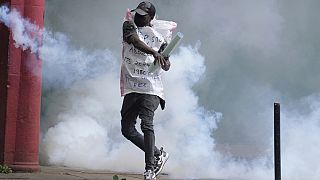
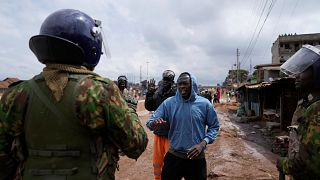
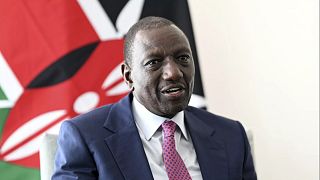
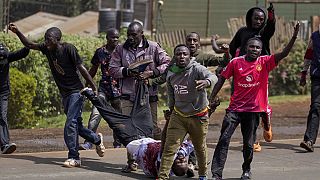


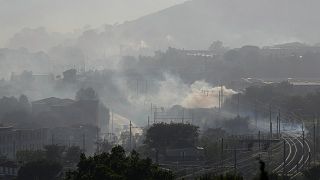
00:37
UN Human Rights Office says 'deeply troubled' by Kenya protester deaths
02:02
Funeral held for Kenyan blogger whose death in police custody sparked violent protests
01:12
ECOWAS calls for restraint in violent protests in Togo
00:28
Nairobi hawker shot at close range by police declared brain dead
Go to video
Kenya's Interior minister accuses protesters of coup attempt after deadly demos
00:48
Death toll in Kenyan anti-government protests rises to 16, says rights group